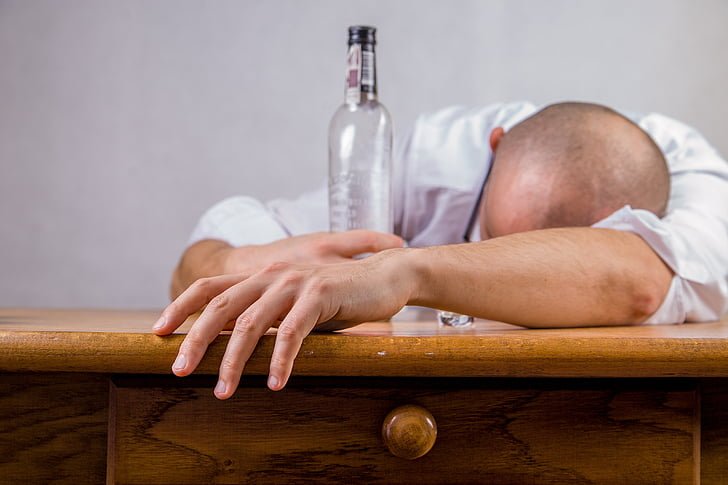The Neurobiological Impact of Alcohol Abuse and the Journey to Sobriety
Recently, I witnessed a tragic incident where a man, visibly intoxicated, met with a fatal accident. This encounter prompted me to reflect on the dangers of alcohol abuse and the challenges individuals face when attempting to quit. Alcohol consumption can lead to severe health consequences, and the decision to quit should not be taken lightly. In this post, we will explore the effects of alcohol on the body and the stages one goes through when attempting to quit alcohol.
In the United States alone, over 100,000 people lost their lives due to alcohol-related causes in 2020, making it one of the leading preventable causes of death. Additionally, countless individuals suffer from alcohol use disorders (AUD), which range from mild to severe. AUD can manifest in various ways, such as the inability to cut back on alcohol consumption, drinking despite experiencing negative consequences, and even drinking while operating vehicles.
When an individual decides to quit drinking (particularly those with a history of heavy alcohol use), the body undergoes a series of changes almost immediately. Within six hours of quitting, the body reacts in different ways depending on the level of alcohol use prior to quitting.
At 12 to 24 hours after quitting, individuals with AUD may experience extreme excitation in the brain, leading to a condition known as delirium tremens. During this stage, hallucinations and seizures may occur, and without proper medical attention, this condition can be life-threatening. As such, it is crucial to seek medical advice and support when considering quitting alcohol.
In the brain, it inhibits the excitatory neurons affected by glutamate, and increases GABA neurotransmitter effect. This leads to more inhibition and less excitation and that is why alcohol is referred to as a depressant. After 24 to 48 hours of alcohol withdrawal, people can experience agitation, as a result of a decrease in the surge in Serotonin in the brain. At this point, people want to get back to drinking so they can feel better.
Before I continue, let m quickly state that this post is intended for educational purposes only and should not be considered medical advice. Always consult a healthcare professional before making any decisions regarding alcohol consumption or quitting. That said, let's continue with the post on quitting that brewed drink, although it can be a vodka.
After 48 hours and about 3 days of quitting alcohol, the brain starts to release corticotropin releasing hormone which would lead to an increase in cortisol release. This will lead to a lack of apetite, an increase in anxiety, increased focus which requires lots of energy. This is because with alcohol, the neurons in the brain starts to change gradually, it also affect the expression of genes for cellular function. This changes includes change in mRNA coding at the prefrontal cortex, the ventral tegmental area of the brain and the superior frontal cortex. So with quitting, the brain is trying to return to its previous existence before you started drinking.
Around three days after quitting alcohol, the brain starts to release corticotropin-releasing hormone, leading to an increase in cortisol release. This can result in a lack of appetite, increased anxiety, and heightened focus. Alcohol causes gradual changes to the neurons in the brain and impacts the expression of genes involved in cellular function. The cessation of alcohol consumption allows the brain to return to its pre-drinking state.
The recovery process continues, and within three to eight weeks of quitting, the gut begins to heal. Alcohol use disorders have been linked to leaky gut issues and disruptions in gut bacteria activity. The gut heals within this period, and depressive symptoms may persist as studies have found a connection between tryptophan dehydrogenase and gut health.
Quitting alcohol also leads to improved sleep quality, with faster sleep onset after four weeks of abstinence. However, it may take additional time for Rapid Eye Movement and slow-wave sleep patterns to normalize.
Since drinking causes dehydration, as alcohol binds to ADH, preventing water absorption back to the body. Research also shows that it alcohol can lead to decrease colagen in the body, and another says that it can lead to cirrhosis after about 5 weeks of quitting, the skin starts to look better.
So when you start to see alcohol as the drug to help you rest after a long day at work, be careful not to fall into Alcohol Use Disorders. It is important to know the impact of the alcohol you are taking in, also you are likely to suffer from AUD if someone from the family had suffer from it previously.
Reference
- https://www.niaaa.nih.gov/alcohols-effects-health/alcohol-topics/alcohol-facts-and-statistics/alcohol-related-emergencies-and-deaths-united-states
- https://emedicine.medscape.com/article/166032-overview
- https://www.ncbi.nlm.nih.gov/pmc/articles/PMC6826798/
- https://www.ncbi.nlm.nih.gov/pmc/articles/PMC3593065/
- https://www.ncbi.nlm.nih.gov/pmc/articles/PMC5513682/
- https://bestpractice.bmj.com/topics/en-us/198
- https://www.ncbi.nlm.nih.gov/pmc/articles/PMC4047192/
- https://www.ncbi.nlm.nih.gov/books/NBK441882/
- https://arcr.niaaa.nih.gov/volume/41/1/natural-recovery-liver-and-other-organs-after-chronic-alcohol-use
- https://americanaddictioncenters.org/withdrawal-timelines-treatments/alcohol
- https://www.ncbi.nlm.nih.gov/books/NBK526069/
- https://teachmephysiology.com/urinary-system/regulation/antidiuretic-hormone/
- https://www.ncbi.nlm.nih.gov/pmc/articles/PMC2936493/
- https://www.ncbi.nlm.nih.gov/pmc/articles/PMC5821259/

Hi, I am Tobi a writer, speaker, relationship blogger, and lover of good music. I love making friends and learning from people. Want to hear me speak on relationships and general life issues, you can find my youtube channel where you can listen and watch any episode for free, please do not forget to subscribe, friends. I sincerely appreciate every love I get from here, kindly do well to keep them coming.


Thanks for your contribution to the STEMsocial community. Feel free to join us on discord to get to know the rest of us!
Please consider delegating to the @stemsocial account (85% of the curation rewards are returned).
Thanks for including @stemsocial as a beneficiary, which gives you stronger support.
A necessary post for educate the e minds filled with abuse and zero-knowledge about consequences. Brilliant, friend @oluwatobiloba